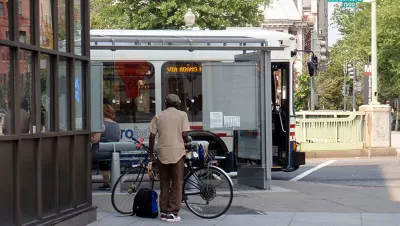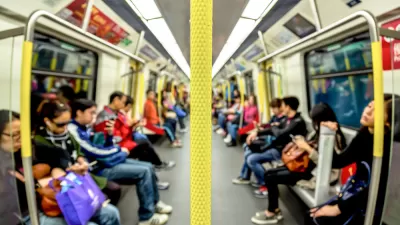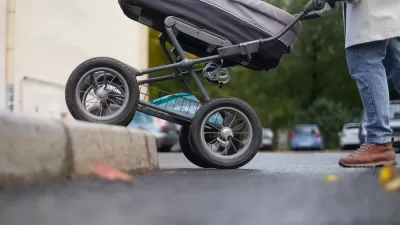A plan to prioritize equity would, according to regional planners, increase access to jobs and resources, reduce emissions, and improve public health.

D.C. officials "are considering whether to prioritize historically underserved areas with high concentrations of minority and low-income residents when deciding where to target affordable housing, transportation investments and other improvements," reports Katherine Shaver. According to regional planners, "[c]ompleting the half-finished National Capital Trail Network, they say, would help more people reach transit-accessible jobs, while reducing traffic congestion and greenhouse gas emissions."
If the plan is approved, "equity would be at the forefront of decisions affecting public health, housing, economic development, job growth and climate change" in addition to transportation. "D.C. Council member Charles Allen (D), the Transportation Planning Board’s chair, said the approach would address the 'east-west divide' that stems from the western part of the region having more jobs and the eastern part having less expensive housing and longer commutes."
"Under the proposal, local governments would focus development around the region’s 150 'high-capacity transit' stations, along with another 75 expected to be built by 2030. That would use the land more efficiently, planners say, because transit stations occupy just 10 percent of the region’s land."
The Metropolitan Washington Council of Governments board will vote on the proposal on October 13. "Separately — but in line with the proposed equity-based approach — the planning board on Wednesday approved its first grants for preliminary design or engineering on local projects that would make it easier and safer to walk or bike to major transit stations."
FULL STORY: D.C.-area leaders consider prioritizing equity in transportation and land use planning

Alabama: Trump Terminates Settlements for Black Communities Harmed By Raw Sewage
Trump deemed the landmark civil rights agreement “illegal DEI and environmental justice policy.”

Planetizen Federal Action Tracker
A weekly monitor of how Trump’s orders and actions are impacting planners and planning in America.

The 120 Year Old Tiny Home Villages That Sheltered San Francisco’s Earthquake Refugees
More than a century ago, San Francisco mobilized to house thousands of residents displaced by the 1906 earthquake. Could their strategy offer a model for the present?

In Both Crashes and Crime, Public Transportation is Far Safer than Driving
Contrary to popular assumptions, public transportation has far lower crash and crime rates than automobile travel. For safer communities, improve and encourage transit travel.

Report: Zoning Reforms Should Complement Nashville’s Ambitious Transit Plan
Without reform, restrictive zoning codes will limit the impact of the city’s planned transit expansion and could exclude some of the residents who depend on transit the most.

Judge Orders Release of Frozen IRA, IIJA Funding
The decision is a victory for environmental groups who charged that freezing funds for critical infrastructure and disaster response programs caused “real and irreparable harm” to communities.
Urban Design for Planners 1: Software Tools
This six-course series explores essential urban design concepts using open source software and equips planners with the tools they need to participate fully in the urban design process.
Planning for Universal Design
Learn the tools for implementing Universal Design in planning regulations.
Clanton & Associates, Inc.
Jessamine County Fiscal Court
Institute for Housing and Urban Development Studies (IHS)
City of Grandview
Harvard GSD Executive Education
Toledo-Lucas County Plan Commissions
Salt Lake City
NYU Wagner Graduate School of Public Service





























